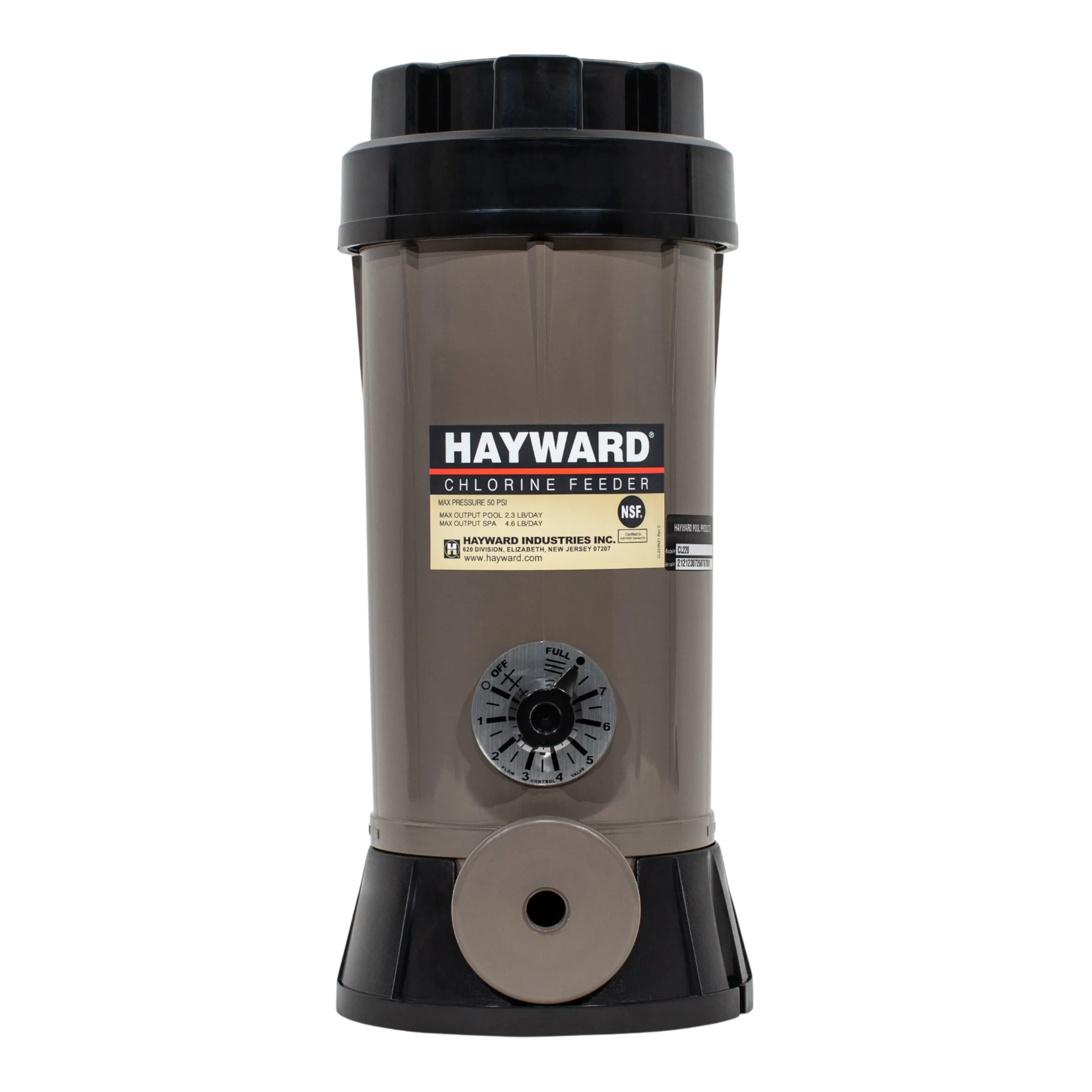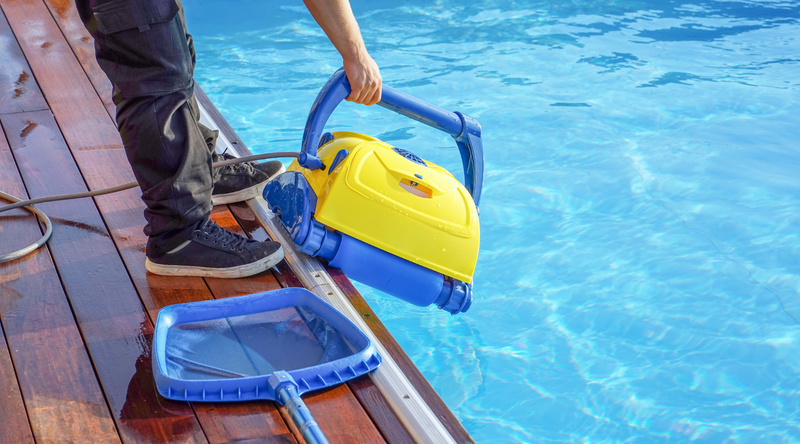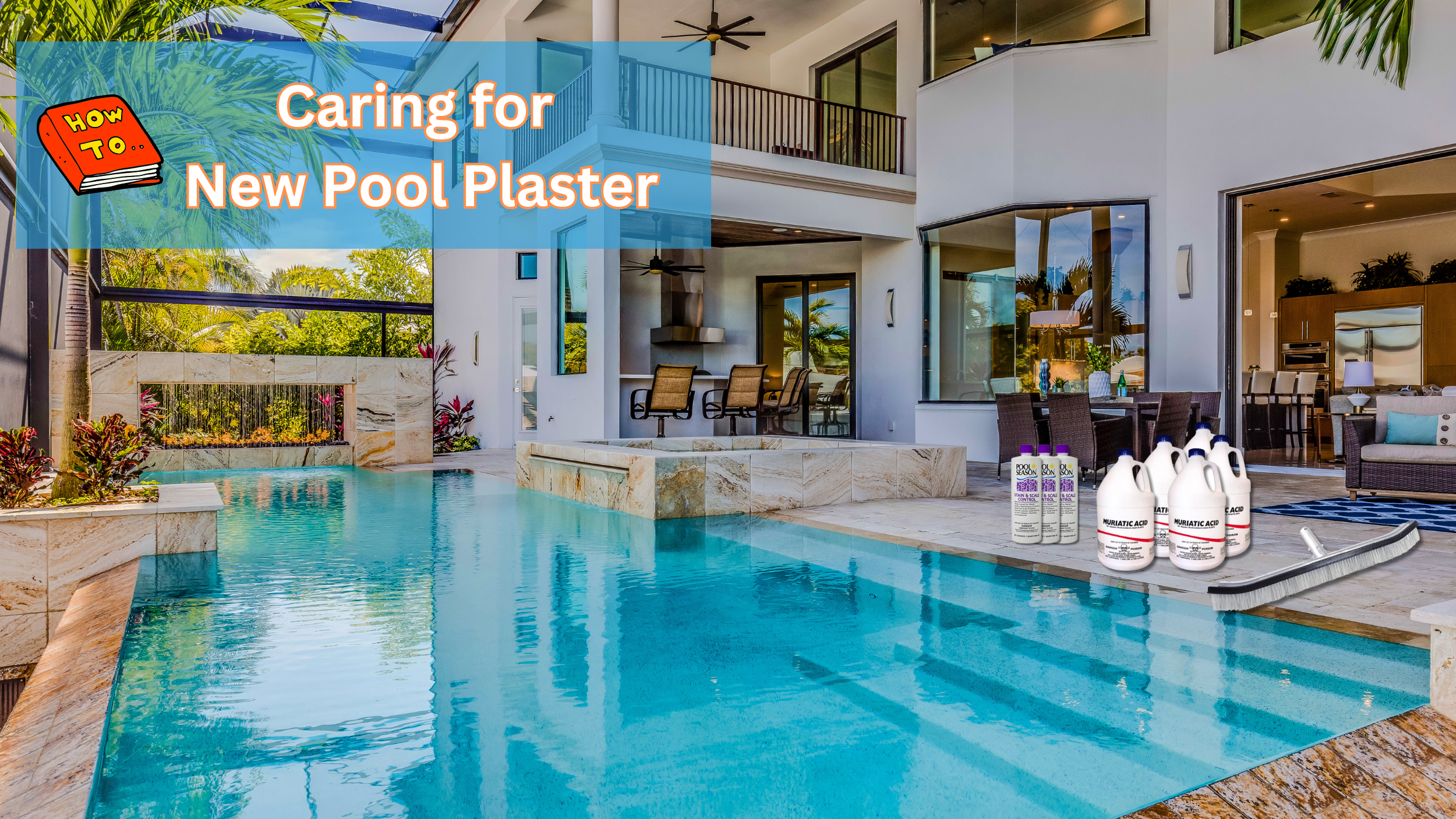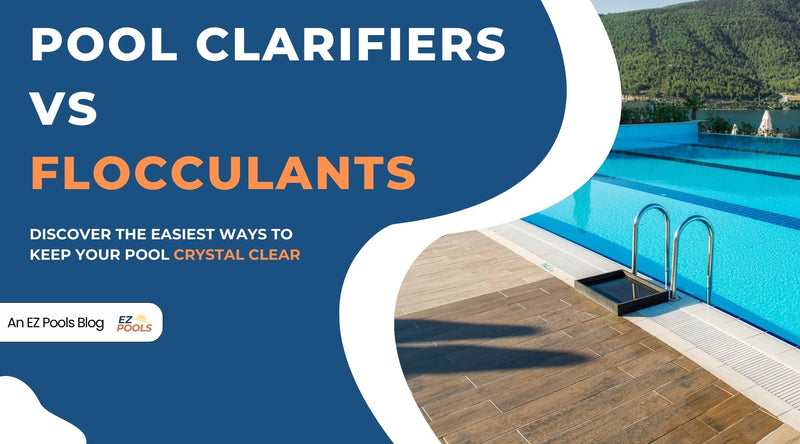The Ultimate Guide to Choosing the Best Pool Chlorinator

When summer rolls around, there's nothing quite like taking a refreshing dip in a crystal-clear pool. However, achieving that perfect water quality requires the right maintenance tools, and one of the most crucial components is a reliable pool chlorinator.
With so many options available on the market, it can be overwhelming to determine which is the best pool chlorinator for your needs.
In this blog post, we'll break down the top picks for pool chlorinators, explore their features, and help you make an informed decision to keep your pool sparkling all summer long.
- What is a Pool Chlorinator, and Why is it Important?
- What are the Different Types of Pool Chlorinators Available?
- What Features Should You Look for in the Best Pool Chlorinator?
- What are the Top Picks for the Best Pool Chlorinator on the Market?
- How do you maintain your pool chlorinator for optimal performance?
- Conclusion

What is a Pool Chlorinator, and Why is it Important?
A pool chlorinator is a device that adds chlorine to your pool water to help sanitize it and maintain safe swimming conditions.
Chlorine kills bacteria, algae, and other harmful contaminants, ensuring that your pool remains clean and clear.
Using a chlorinator automates the chlorine addition process, making it easier to maintain proper chemical balance without the hassle of manually adding chlorine.

What are the Different Types of Pool Chlorinators Available?
Saltwater Chlorinators
Saltwater chlorinators convert salt into chlorine through electrolysis, providing a more gentle and consistent chlorine level. They offer a reduced chlorine smell and irritation, and can even soften your water, giving you a result similar to that of GLB Aqua Silk. While salt cells can save money in the long run by reducing the need for costly chlorine tablets, the upfront cost can be expensive.
Traditional Chlorinators
Conventional pool chlorinators utilize slow-dissolving chlorine tablets to introduce chlorine into your pool. This category includes floating chlorine feeders, off-line chlorinators, and in-line chlorinators.
Off-Line Chlorinators
- Models such as the Hayward CL220, or Rainbow 300 Chlorinators
- Installed by drilling holes in your existing pool plumbing, making for an easy installation.

In-Line Chlorinators
- Models such as the Hayward CL200, or Rainbow HC Series Chlorinators
- Installed in-line with your existing pool plumbing, usually with threaded unions

Floating Chlorinators
- The go-to for smaller pools- perfect for above ground pools or those without the need for constant chlorine adjustments.
Liquid Chemical Feeders
Liquid chemical feeders, such as the Stenner Pump, introduce chlorine in liquid form directly into the circulation system of your pool. This approach allows for quick modifications to chlorine levels and integrates seamlessly with automated pool management systems.
Pool chlorinators must be installed after the heater as shown in the diagrams above!
If the return of your chlorinator is not installed after the heater, you will be sending chlorinated water through your heater & significantly damage your heat exchanger!
What Features Should You Look for in the Best Pool Chlorinator?
When searching for the best pool chlorinator, consider factors such as:
Ease of Use: Look for models that are user-friendly and easy to install.
Compatibility: Ensure the chlorinator is suitable for your pool type and size.
Automation Features: Models with automation can make maintenance simpler.
Compatibility: Ensure the chlorinator is suitable for your pool type and size.

At the end of the day, the choice will be different for every pool owner. If you're looking for a more pleasureable swimming experience, you may want to go with a saltwater chlorine generator.
If you've already got an automation system or chemical controller then you may want to go with a liquid chemical feeder for a seamless integration.
If you have a smaller pool & want a simple solution to keeping your chlorine level up, you might want to go with an off-line model like the Hayward CL220 or a simple chlorine floater- like one of our customers shown here!
What are the Top Picks for the Best Pool Chlorinator on the Market?
Ultimately, this depends on which category of chlorinators you're looking for. Below are some our recommendations of the most popular pool chlorinators.
Saltwater Chlorinators
-
Hayward AquaRite
W3AQR9
Hayward's flagship salt chlorinator- treats up to 25K Gallons -
Pentair
IntelliChlor IC20
Pentair's flagship salt cell- treats to 20K Gallons -
Pentair IntelliChlor
IC15
Above-Ground Salt Cell perfect for pools under 15K Gallons and uses a normal 115V outlet
In-Line Chlorinators
-
Hayward CL200
Treats up to 40,000 Gallons -
Pentair Rainbow 320
Treats up to 60,000 Gallons
Off-Line Chlorinators
-
Hayward CL220
Treats up to 40,000 Gallons -
Rainbow 300
Treats up to 50,000 Gallons
Above-Ground Chlorinators
-
Hayward CL100 (In-Line) or
Hayward CL110 (Off-Line)
Treats up to 15,000 Gallons - Traditional Chlorine Floaters
Liquid Chemical Feeders
-
Stenner 45MP Adjustable-Head Feeder
Capable of feeding up to 50 gallons of liquid chlorine per day
How do you maintain your pool chlorinator for optimal performance?
To keep your pool chlorinator in tip-top shape, it’s super important to do some regular upkeep.
The good thing is, chlorinator repairs are usually pretty straightforward, making it easy to fix minor issues without breaking a sweat. Whether it’s swapping out a worn-out gasket or unclogging a feeder line, you can often tackle these tasks yourself. With just a little know-how and some basic tools, you'll have your chlorinator running smoothly again in no time.
If you’ve got Off-Line models like the Rainbow 320, you might need to swap out the poly tubing or toss in a new clamp and saddle fitting to keep those inlet and outlet ports nice and tight. On-line chemical feeders might need a new o-ring every now and then, but they’re usually pretty sturdy since they’re hard-plumbed into the system.

That being said, it’s a good idea to change out your gaskets once a year and fix any broken parts—like a loose chlorinator lid—to prevent those nasty fumes or super-chlorinated water from leaking all over the pump room. For any union or threaded connections, teflon tape is your best friend.
For liquid chemical feeders, you’ll notice some calcification building up where your tubing and injector connect to the plumbing, so it’s smart to clean that out every couple of months. Plus, make sure to replace the inner santoprene pump tube every 6 to 12 months too.
In short, if you’re smelling a strong whiff of chlorine gas, there’s probably a leak somewhere that needs fixing!
Conclusion
Picking the right pool chlorinator can significantly enhance your pool maintenance routine, helping you achieve the crystal-clear water we all crave during the summer heat.
By understanding the different features & benefits of each pool chlorinator type, you'll be well-equipped to keep your pool sparkling all season long.
Whether you go for a saltwater setup or a classic chlorinator, keeping your pool clean and safe means you and your fam can have endless fun in the sun. Enjoy those swims!
Frequently Asked Questions
Some more information on common questions about Pool Chlorinators.
How long does a pool chlorinator last?
A pool chlorinator can easily last up to 7 years with proper care and maintenance. Most units typically need o-rings or gaskets replaced year or two to prevent leaks, but otherwise upkeep is minimal.
Where should I install my pool chlorinator?
Your pool chlorinator should be installed with the inlet port between the pump outlet and filter inlet. The return port for your chlorinator should be installed at the very end of your pool plumbing return line, after any heaters or other components. This will prevent chlorinated water from going through these fragile components.
Can I use bromine in my pool chlorinator?
Yes- you can! Slow-dissolivng chlorine feeders such as the CL220 are compatible with both Bromine and Tri-Chlor tablets. However, Cal Hypo feeders are not compatible with any other sanitizer except for calcium hypochlorite tablets.
Our Blog
Questions?
Don't hesitate to contact our support team at support@ezpools.com, or by submitting a form on our website! We've got pool experts standing by, ready to help.
Contact Us


